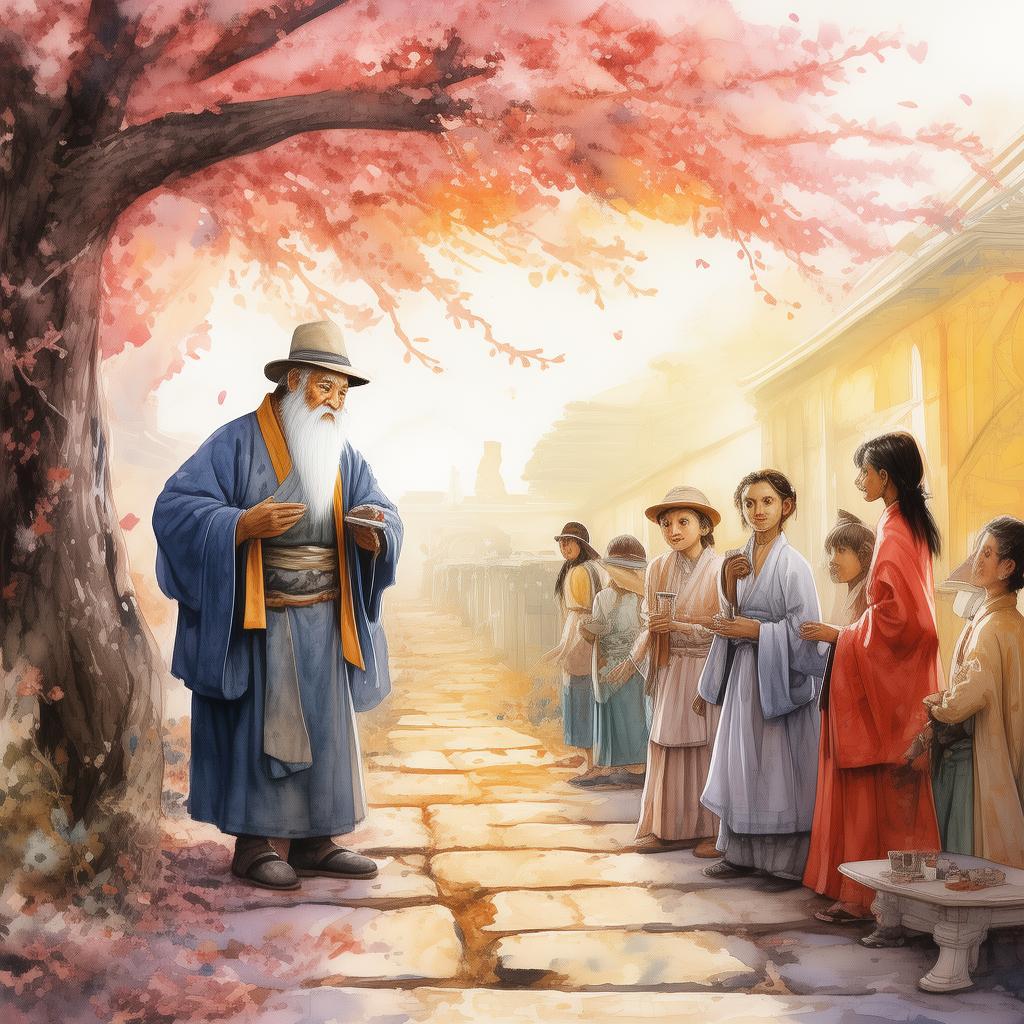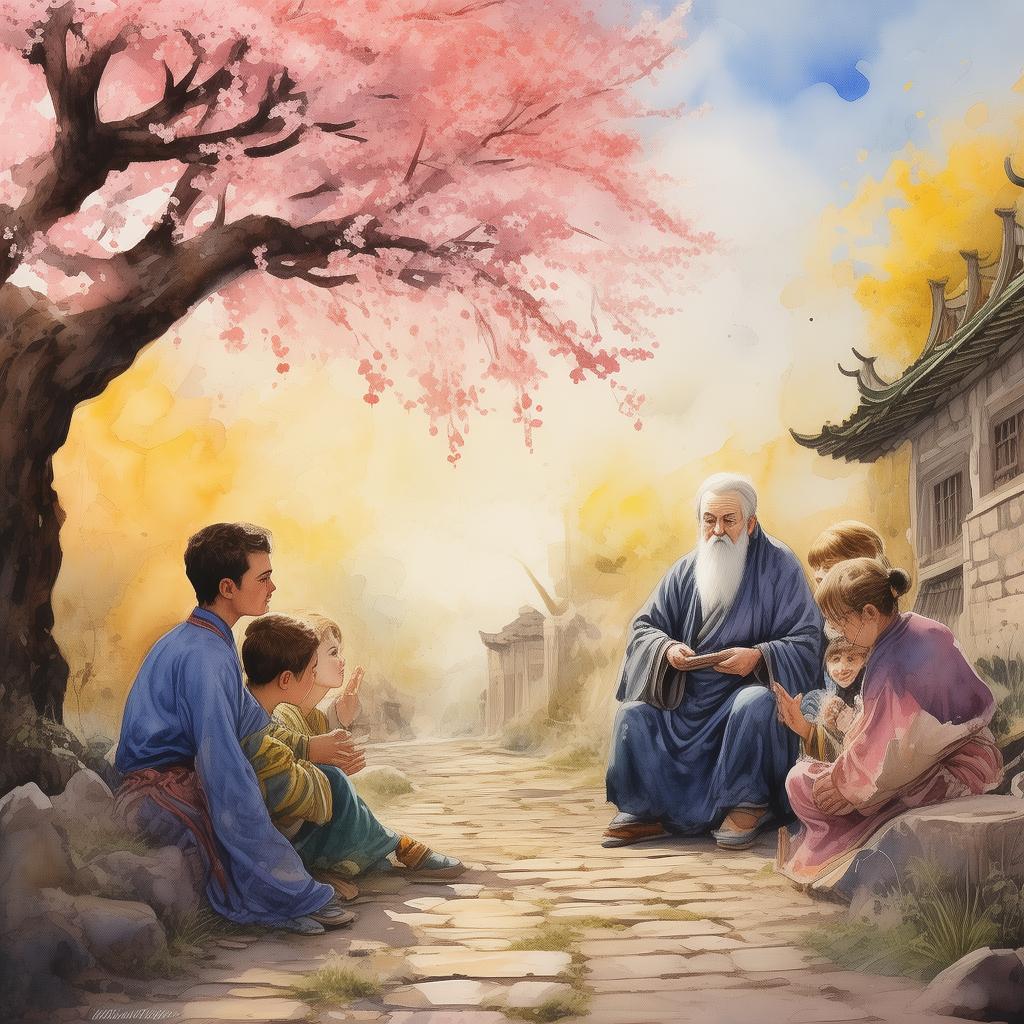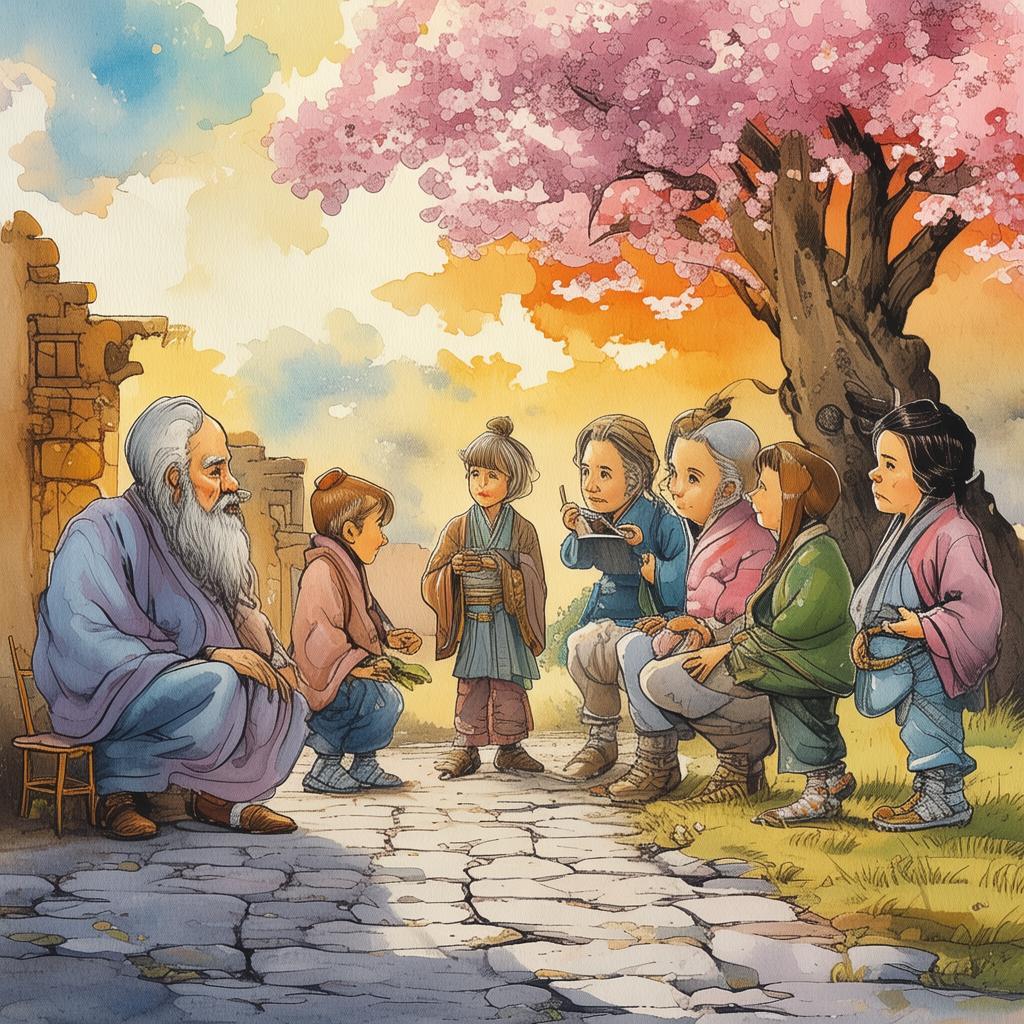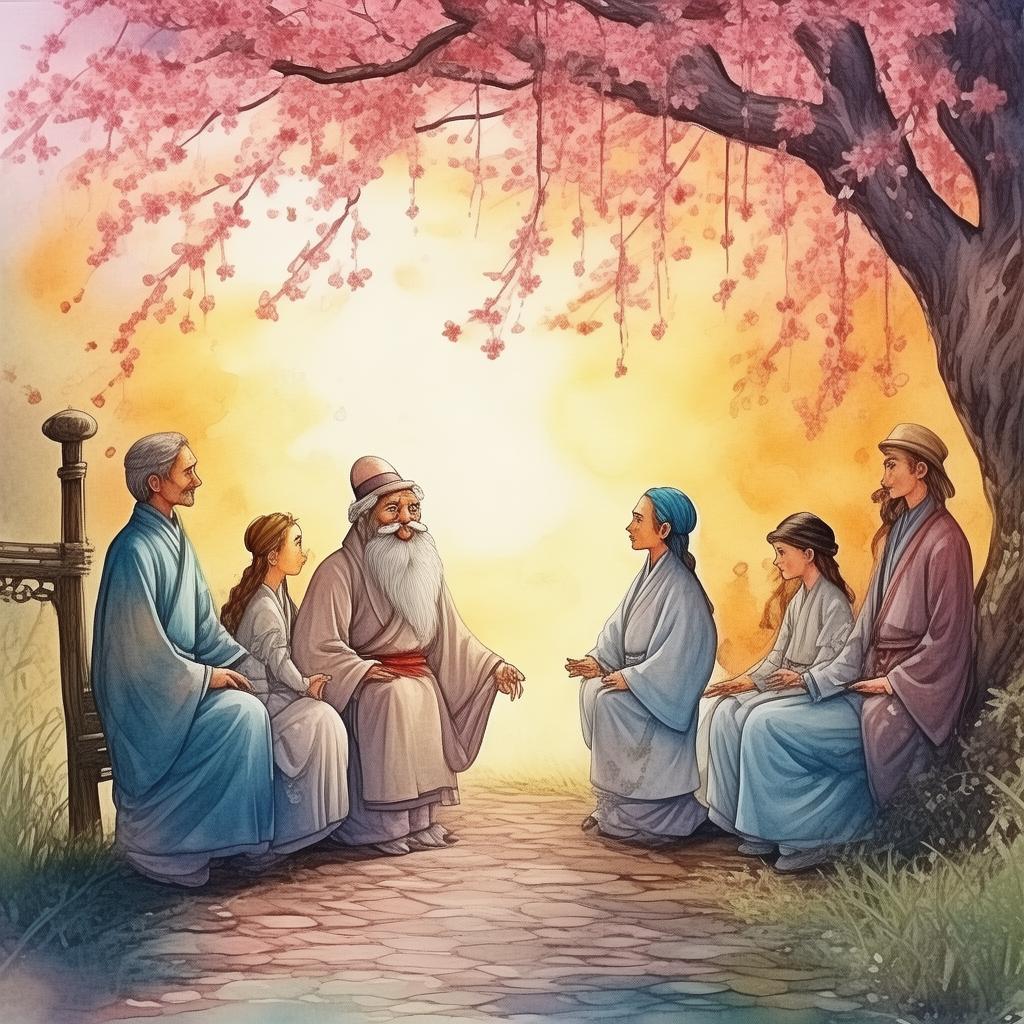Whispers of the Vanished Poet
In the ancient city of Liang, where the whispers of history echoed through cobblestone streets, there lived a poet whose verses were said to carry the power of the gods. His name was Qing, and his tales were known far and wide, enchanting listeners with their beauty and depth. Yet, there was a shadow hanging over his life—a love story that had ended in tragedy.
Qing had once been in love with a young woman named Mei, whose voice was as sweet as the nightingale's song. Their love was so profound that it had inspired Qing to write his most beautiful and moving poem, "The Song of Mei." However, their love was not to be. A cruel fate had decreed that Mei would meet her end in a fiery blaze, leaving Qing bereaved and broken-hearted.
In the years that followed, Qing's sorrow turned to obsession. He believed that the only way to keep Mei alive was through his poetry, and he dedicated his life to writing, hoping to capture the essence of her spirit. Yet, as the years passed, his heart grew colder, and his verses darker. The once beloved poet became known as the Timeless Bard, whose words were a haunting reminder of unrequited love.
One evening, as Qing sat in his dimly lit study, pen in hand, he heard a faint whisper. It was the voice of Mei, calling out to him from beyond the veil of life. It was a voice that had not been heard for many years, a voice that spoke of a promise made, a promise that had been broken.
Determined to uncover the truth behind the whispered promise, Qing embarked on a journey that would take him deep into the heart of the ancient city of Liang. Along the way, he encountered strange characters and mysterious events that seemed to be connected to the past he was trying to uncover.
Among these characters was a young woman named Ling, whose eyes held the same sadness that Qing had once known. She spoke of a vanished poet, a man who had vanished without a trace, leaving behind a legacy of unfulfilled dreams and broken promises. It was this vanished poet who had once been Qing's mentor, and it was he who had whispered to Mei about the promise that had been made.
As Qing delved deeper into the mystery, he discovered that the vanished poet was none other than himself. The promise had been a lie, a deception that had been kept secret for years. The vanished poet was a creation of Qing's own mind, a projection of his deepest fears and desires.

In the climactic moment, Qing confronted the truth of his past, the truth of his love, and the truth of his own self-deception. He realized that the only way to honor Mei and the promise that had been made was to face the truth and to use his talent to bring light to the darkness that had consumed him.
With newfound clarity, Qing returned to his studies, vowing to write a new poem that would tell the truth of his love, the truth of his pain, and the truth of his redemption. He poured his heart and soul into this new work, and as he finished, he felt a profound sense of peace.
The poem was titled "The Return of the Timeless Bard," and it was said to have the power to bring back the dead. In the end, it was not the power of the gods that brought Mei back to life, but the power of Qing's love, his courage, and his ability to face the truth.
And so, the legend of the Timeless Bard was born anew, not as a tale of unrequited love, but as a story of redemption, of hope, and of the enduring power of the human spirit.
✨ Original Statement ✨
All articles published on this website (including but not limited to text, images, videos, and other content) are original or authorized for reposting and are protected by relevant laws. Without the explicit written permission of this website, no individual or organization may copy, modify, repost, or use the content for commercial purposes.
If you need to quote or cooperate, please contact this site for authorization. We reserve the right to pursue legal responsibility for any unauthorized use.
Hereby declared.









